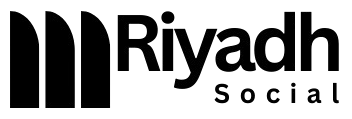Nutrition and Health Education for Breast Cancer Prevention

Health Education from an Early Age… Protects Against Breast Cancer
Health education from an early age… protects against breast cancer
Knowledge at a young age is like engraving in stone.. A famous saying, profound and carrying many meanings. Unfortunately, most of us parroted it without understanding the depth of its meaning and the need to apply it.
To teach young people the principles of life and everything that surrounds it, to instill in your children, daughters, and teenage youth foundations and directions that they follow from childhood until advanced age, is what this saying revolves around. To create an educated, conscious generation that understands the inside of things and knows a lot about the things that should be done and the things that should be avoided, is the content of this eternal saying.
The role of nutrition and health education from an early age is necessary to prevent breast cancer, which is what Tala Mustafa, a certified medical and therapeutic nutritionist from Aman Wellness Clinic Dubai, will share with us in today’s article.
Health education from an early age… protects against breast cancer
Breast cancer is one of the most common types of cancer among women worldwide. Despite the great development in early detection and treatment methods, prevention remains one of the most important ways to reduce infection rates.
Research indicates that healthy nutrition from an early age plays an important role in reducing the risk of breast cancer. In addition, continuous education for girls and women about the importance of breast self-examination and periodic medical examination is an essential foundation for early detection of the disease, which contributes greatly to improving the chances of treatment and recovery.
We will divide our topic today into two main paragraphs: the first focuses on healthy nutrition and its role in preventing breast cancer; The second addresses the importance of educating females from a young age about self- and medical examination to detect breast cancer.
The role of nutrition in preventing breast cancer
Good, balanced nutrition plays a pivotal role in preventing many chronic diseases, including breast cancer, confirms Tala Mostafa. She adds: “These healthy eating habits begin in childhood, where doctors and nutritionists encourage eating a diet rich in vitamins, minerals and antioxidants that promote cell health and reduce the risk of cancer.
Let us learn more about the advantages of these preventive foods:
- Foods rich in antioxidants: Antioxidants are substances that fight free radicals that cause cell damage and turn them into cancerous cells. Foods such as colorful fruits and vegetables, especially berries, strawberries, broccoli, and spinach, contain large amounts of antioxidants such as vitamin C and vitamin E. Eating these foods regularly can reduce the risk of breast cancer.
- Diet with a high fiber: Foods rich in fiber, such as whole grains, legumes, and vegetables, help reduce estrogen levels in the blood. Studies have shown that elevated hormones increase the risk of breast cancer. Therefore, focusing on eating sufficient amounts of fiber contributes to improving the functions of the digestive system and balancing hormones in the body.
- Healthy fats: Eating healthy fats such as those found in olive oil, avocados, and nuts can reduce the risk of breast cancer. Unsaturated fats promote cardiovascular health and reduce inflammation in the body that may contribute to the development of cancer.
- Protein: Reducing the intake of animal proteins, such as red meat, and relying on plant proteins, such as lentils, beans, and low-fat proteins, such as fish, may contribute to cancer prevention. Research has shown that a plant-based diet improves body health and reduces cell inflammation.
The importance of education about self-examination and medical examination
Besides good nutrition, health education plays a major role in preventing breast cancer. Tala Mustafa points out that self-examination and regular medical examination contribute to early detection of any abnormal changes in the breast, which enhances the chances of successful treatment and complete recovery.
How to do a self-examination:
- Stand in front of a mirror and look at your breasts to discover any changes in shape or size.
- Raise the arms and examine the armpit area to ensure there are no lumps.
- Use your fingers to gently press on the breast in circular motions, to look for any lumps or swellings.
The ideal timing for a medical examination:
- Women between the ages of 40 and 49: It is preferable to perform a mammogram every one or two years based on the doctor’s recommendations.
- Women over the age of 50: A mammogram is recommended annually.
- Younger women with a family history of breast cancer may need to start screening at an earlier age based on their doctor’s advice.
Conclusion:
Educating girls and women about breast cancer, self-examination, and periodic medical examination should be part of the general culture of society. Providing information in simple and organized ways contributes to enhancing awareness and motivates women to take preventive steps early. Schools, universities, and health centers play a major role in this education, through awareness campaigns and workshops to train on self-examination and explain the importance of healthy nutrition.
Frequently Asked Questions:
- When do I start to perform breast self-examination?
- It is recommended to start self-examination in your twenties.
- How often should I perform a mammogram?
- Women between the ages of 40 and 49 should perform a mammogram every one or two years, while women over the age of 50 should perform a mammogram annually.
- Can a plant-based diet help prevent breast cancer?
- Yes, a plant-based diet has been shown to improve body health and reduce cell inflammation, which can contribute to a reduced risk of breast cancer.

